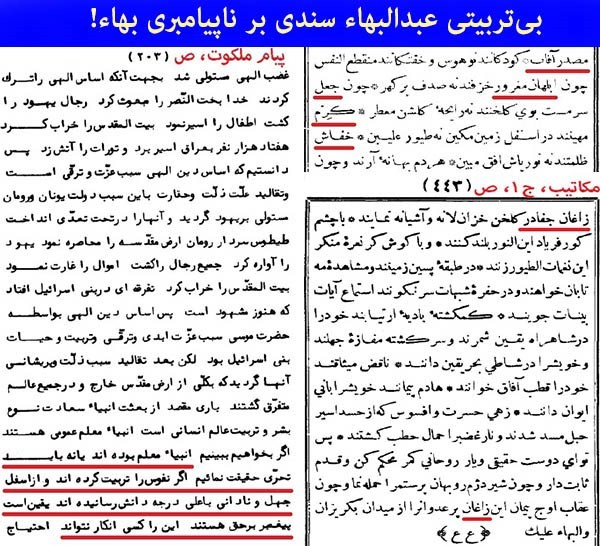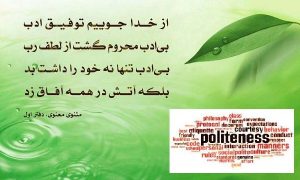Abdul Baha has considered the fulfillment of human education as one of the reasons for the divine prophet legitimacy; while contrary to the claim, the forged prophet of Baha’ism was unable to educate even his offspring! Consequently, according to Baha’ism, the forged prophet of Baha’ism isn’t right!
According to Abdul Baha, one of the criteria for the legitimacy of prophets is educating human being: “If we want to know whether the prophets have been teachers or not, we should investigate the truth independently. If people are being educated and they have been progressed from the lowest degree to the highest it would be certain that the prophet would be right. Nobody is able to reject this fact.[1]“

According Abdul Baha, if a claimant of prophethood isn’t able to educate people, he won’t be right?! So, the claimant of prophethood (who has been unable to educate his offspring and they have fought on his succesion called each other as roach, worm, bat, crow, fox, wolf, calf and donkey)[2] isn’t right.
The basis of Abdul Baha: “If people are being educated from the lowest degree to the highest, the prophet will be right.[3]“
There are two notes:
- The Baha’i leaders have used these words not only for the people; but also for some tribes.[4]
- According to the forged prophet of Baha’ism order, the Baha’is must avoid cursing even about enemies[5]; while what is the meaning of such cursing among Baha’i family members?! How did the Baha’i leaders preach orders while they didn’t act?!
[۱] Ishraq Khawari, the message of heaven, India, Bina, 1986 A.D. p. 203.
[۲] Abbas effendi, Makatib, Al-Emiyeh publishing house, Egypt, attempted by Farajullah Zaki Al-Kurdi, 1330 A.H., Vol. 1, p. 442-443 & 271.
[۳] Ishraq Khawari, the message of heavens, India: Bina, 1986 A.D. p. 203.
[۴] For more studies refer to the article: Insulting the nations in Baha’ism.
[۵] Abdul Hamid Ishraq Khawari, the treasury of limitations and commandments, the electronic copy, p. 306.






